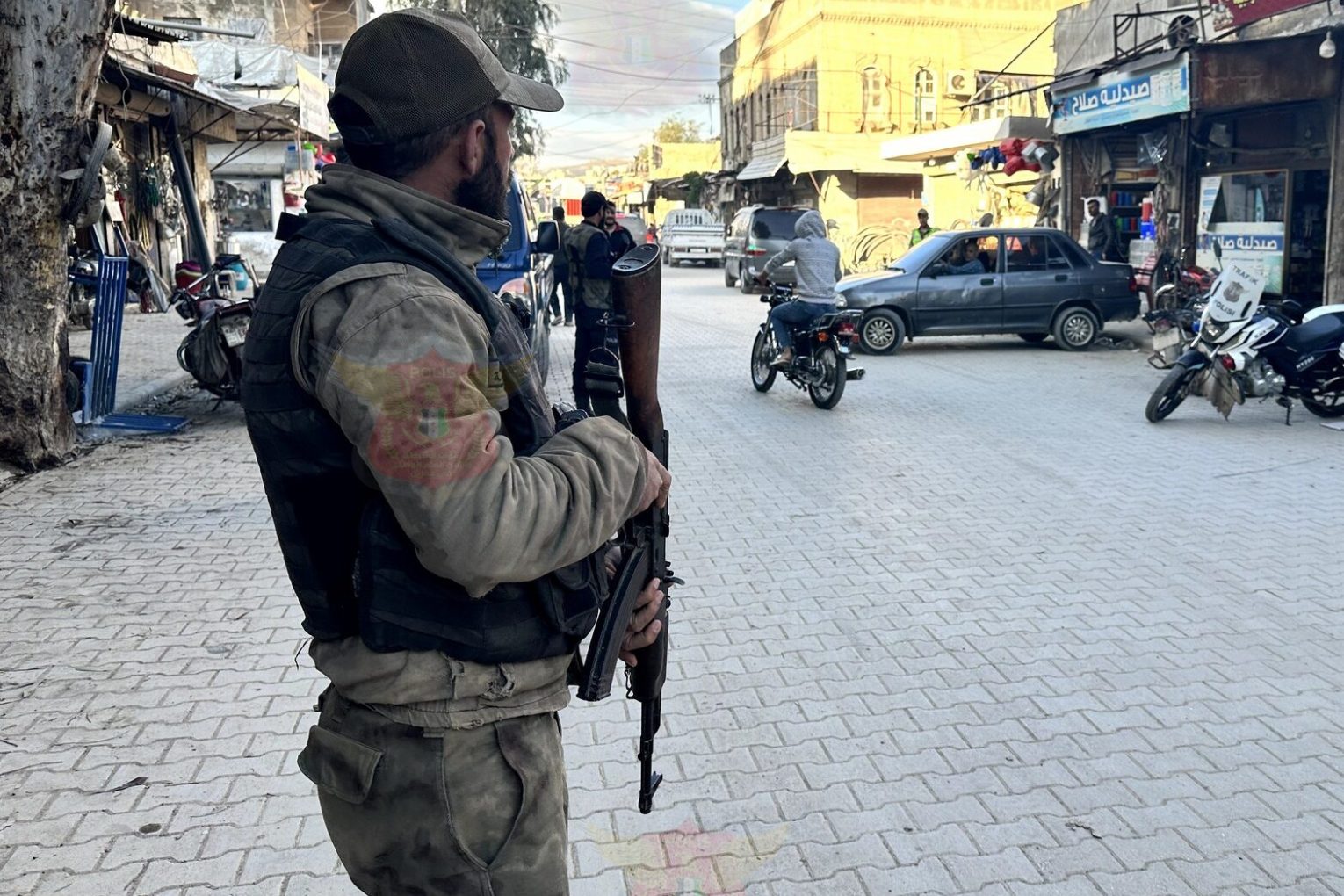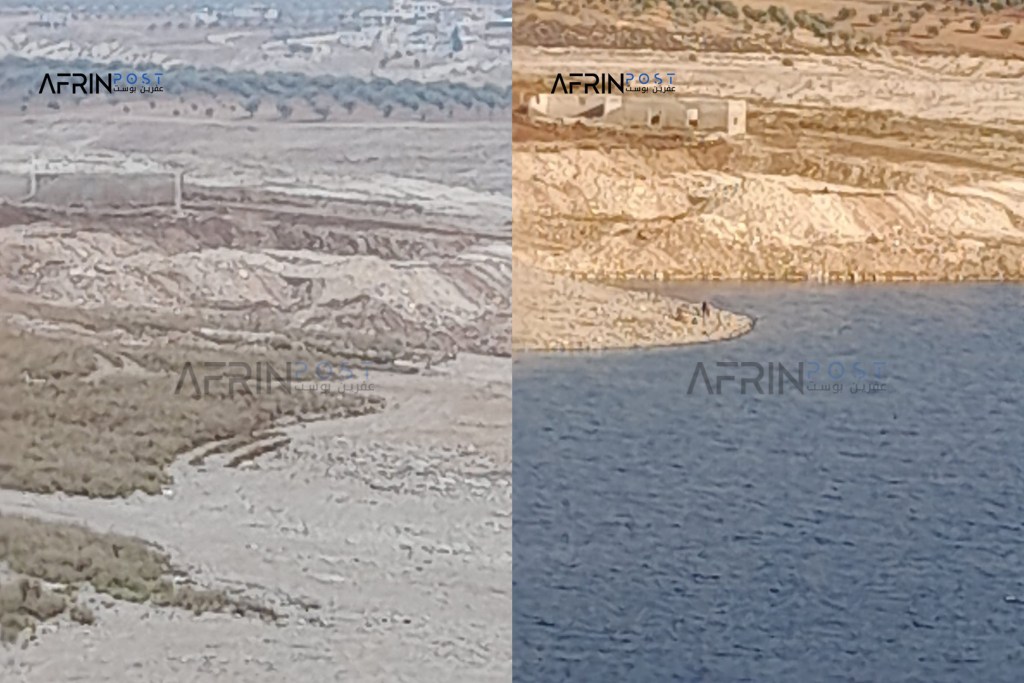
afrinpost-Exclusive
In a recent report published by Fox Aleppo on August 28th, attention was drawn to the concerning issue of the declining Afrin River and the resulting water crisis. Despite appeals and temporary solutions, the vital summer agricultural season of Afrin remains at risk due to the river’s complete drying up. Responsibility for this dire situation has been attributed to the Turkish government, which has closed off the river’s flow, along with a lack of oversight and planning for retaining winter rainwater.
The severity of the situation is apparent as one can now traverse the dry riverbed of the Afrin River on foot, from areas in Jindires to Nesriyah, situated near the border wall southwest of Afrin. Portions of the river have transformed into sewage-infested swamps while other areas have become drainage channels.
Local farmers and activists’ pleas for a solution to re-establish the river’s flow, which has been accused of being cut off by Turkey, have remained unanswered. Attempts at temporarily irrigating crops through groundwater wells have proven insufficient, leaving the agricultural sector in peril.
The dire conditions stem from a combination of factors, including the reduction of river water due to Turkey’s closure of the river and the cessation of water discharge from the Midanki Dam and Lake. Additionally, limited rainfall and the failure to retain rainwater during the winter months have exacerbated the crisis.
Ahmed Warda, an engineer on the Dam Inspection Committee post the February 2023 earthquake, estimated the dam’s reservoir level at the end of the previous winter to be around 40% to 50% of its storage capacity of 190 million cubic meters.
Suleiman Mahmoud, Director of Jindires Water Unit, noted that the stored water increased by 20 million cubic meters between 2014 and 2017. However, residents and videos that have circulated depicting the riverbed’s complete dryness contradict these claims, asserting that the river’s water levels haven’t experienced such an unprecedented decline before.
Residents suggest that the decrease in water can be attributed to the construction of small collection dams by the Hammazat militia in the village of Birj Abdallu, impeding the flow of water to the main riverbed.
Moreover, a small dam was constructed to control irrigation waters and then forced to be reopened, yet the river’s flow remains stagnant, running dry in areas like Tell Salour and continuing south towards the Syrian-Turkish border.
Authorities in Turkey opened the drainage gates of Lake Midaanki, redirecting water to the Rihaniyah Dam, raising alarms among communities. Particularly affected regions include the Jindires district, where secondary river lines have run completely dry. This phenomenon is especially pronounced in the vicinity of the villages of Deir Ballout and Al-Mohammadiyah, both situated near the Syrian-Turkish border.
In response to the water crisis, activist Fadi Shabbat issued a public appeal via the media on August 16th in Jindires. He urged residents of houses near the river to acquire insecticides. Shabbat stated that with the river’s drying up, sewage swamp formation and factory waste accumulation have become prevalent, leading to a surge in snake and insect sightings






